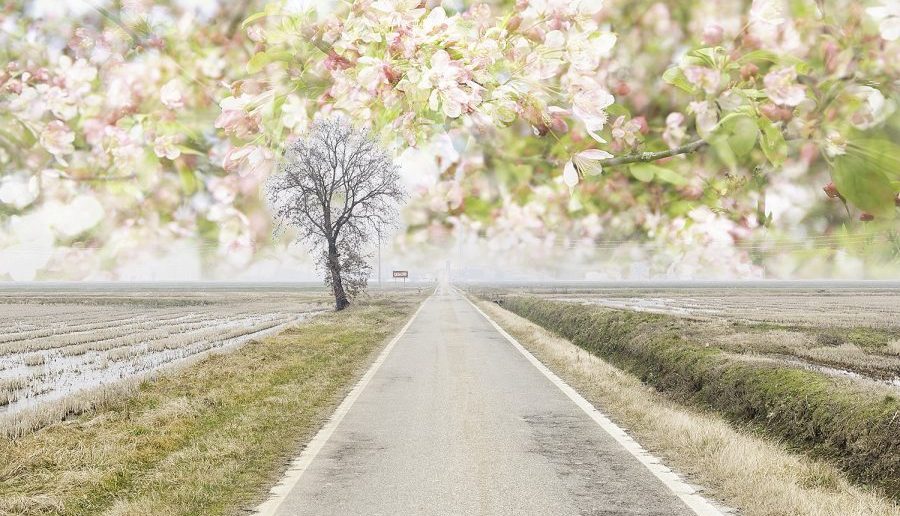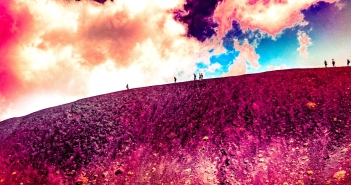April is generally associated with fresh flowers and cooling rain showers. It is also the dreaded deadline to file taxes. Whether you were enjoying the foliage or sitting down to calculate your tax refund, I think we can all agree that April was particularly cruel this year due to the Covid-19 pandemic.
That month Frank Armstrong examined the underlying conditions exacerbating the pandemic in most Western countries:
The dangers posed by this outbreak, and future ones that nature will throw at us, require a thorough reappraisal of public health priorities. Medical systems in advanced Western countries – especially those dominated by the private sector – tend to prioritise treatment of the symptoms of the main non-contagious diseases. We ‘live’ with cancer and heart disease as opposed to addressing multifarious lifestyle causes, which the virus is now preying on.
As Boris Johnson’s predicament underlines, anyone is susceptible to Covid-19, but chances of exposure – without recklessly ignoring medical advice – are often determined by social class, which intersects with lower life expectancy already.
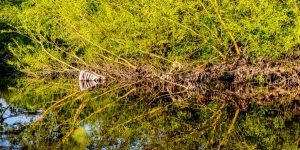
NGO worker Justin Frewen drew on his experience of the Ebola epidemic in Guinea. He recognised that ‘the potential onward transmission of Covid-19 is far greater than for Ebola, as it does not require direct physical contact with the carrier of the virus.’ By that stage, however, it seems it could not ‘be transmitted through the air directly which would greatly increase its range and ease of transmission.’
Frewen also recalled the failures of the WHO during the Ebola epidemic, and speculated as to whether the organisation had been too slow, again, in controlling the outbreak.
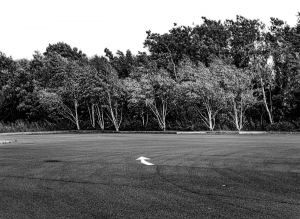
Meanwhile a pandemic doctor was steeling himself to the arrival of the grim reaper:
By recognising what death is we recognise what life is. That is maybe why this feels like such a moment of quickening. Death has come knocking at our doors and we are forced to open and acknowledge him. The door will close again, but the collective memory will remain, and when the pandemic is over this may help us to invest life with more meaning.
Another pandemic doctor surveyed the chaos in Ireland’s care homes, in an article that was subsequently republished on the state broadcaster RTÉ’s website:
Last I saw her, rendered unrecognisable behind sheets of dehumanising plastic, she clutched at my hand with her failing limbs and begged me not to leave. But in every room, each now unadorned with the usual ersatz trappings of home and identity one finds in nursing homes – photographs, homespun blankets, love letters from grandchildren – fellow residents lie awaiting their rushed assessments. Oxygen saturations, pulse and respiratory rate, a survey of existing co-morbidities, and finally resuscitation and transfer status to be revisited and revised: who might possibly be saved by hospital transfer, and whose last comfort would be the inevitable cocktail of morphine and midazolam, slipped quietly under the skin at intervals until death arrives.
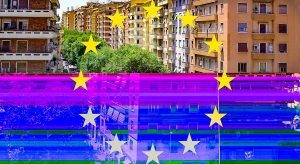
The pandemic created an enormous burden on the finances of most European States. By April according to Kyran FitzGerald the E.U. was teetering on the brink:
Across Europe, national Governments have moved to tackle the crisis by propping up incomes. Northern European states tend to have efficient bureaucracies and reasonable resilient national balance sheets. But even in places such as prosperous Denmark, there are concerns that many businesses will not reopen after what is increasingly looking like a long shut down.
The picture in Southern Europe is as mentioned much more bleak. In Italy and Spain, there is a real sense of let down amid the crisis, though better off nations like Germany have latterly moved to show solidarity by sending supplies and flying some patients from Eastern France and northern Italy to their hospitals for treatment.
Lockdowns…

Dmytro Sidashev / Alamy Stock Photo
The lockdown will live long in cultural imaginations, and as an instrument of government control; its pros and cons will be debated endlessly. We published an account from China, where the policy first emerged by an anonymous correspondent, who saw it as the beginning of another Cultural Revolution.
I had booked a hotel – but ended up alongside five families living in a large apartment for seven days. Only two of us were allowed outside to buy food – everyone else had to stay inside. Before leaving we were covered head-to-toe, in gloves, face masks and head coverings. On our return we went through elaborate cleaning procedures before re-entering the apartment. We had to remove our ‘outside’ clothing and spray everything with 75% alcohol.
No cars with registrations from outside the capital city were allowed in. The schools were on holiday and due to return the first week in March but are still closed all over China. Only students doing important exams at the end of term will be allowed to return initially, which hasn’t happened yet.
Leaving Beijing, I returned to my home city of ****. You are supposed to scan your phone so they can track potential carriers arriving into the city – which I hadn’t, having used a private firm for the airport collection. This meant my car registration didn’t show up on the cameras. So the next day the authorities were in touch to find out how I made it back from the airport.
Italy was the first European country to adopt the measure, and from Piedmont Silvia Panizza observed how the confinement was diminishing her physical health:
Our bodies, already weakened by sedentary lifestyles, are becoming weaker, muscle-mass decreasing quickly through lack of exercise. We do what we can, setting up home gyms, doing yoga in our bedrooms, a few push ups in the morning. No running, swimming, no going for walks; hardly breathing in the fresh air, panting, moving, or sweating. I do a little gardening in pots on the balcony, which I hadn’t done before. All of a sudden tomato seeds seemed the most important item on my shopping list during my weekly, stressful visit to the supermarket.
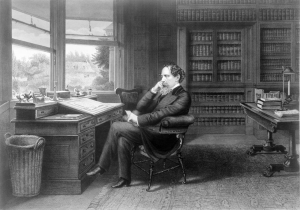
It was a particularly challenging period for older people who were advised to cocoon in Ireland, another unwelcome neologism from this period. Fergus Armstrong reflected on the experience:
We can have a gnawing sense that our civilisation got things wrong, that it is being, somehow, punished. A year ago I heard a retreat-giver say that we had lost the ability to read the signs of the times. We had belonged, or thought we belonged, on a planet that although under threat, and although subject to disaster more or less randomly distributed, was broadly on a path of progress, of improvement, even for under-developed regions. Nature mostly provided balance and harmony.
Modern science reinforces this optimism at the cosmic level. We now know that the total universe that includes our Milky Way as one of nearly a hundred million galaxies has been expanding since the Big Bang. But if the rate of its expansion had been even a millionth of a percent slower, the whole thing would have collapsed, imploded in upon itself. There was fine tuning. Now trust is at issue with a particularly severe jolt for the Western world. It could be said that most of our strategies of coping are in the nature of distraction. To the extent this is so, the underlying unease remains. Call it dis-ease in fact.
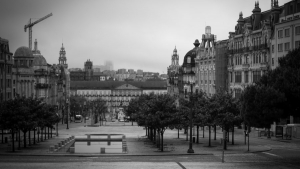
While over in Porto, Brazilian Fellipe Monteiro observed:
What I, other immigrants, and the Portuguese hope is that we can return to the life we had before, and be able to leave this prison, without bars, that our homes have become. While we try to renew ourselves, the city is still and visibly lacking the energy and joy of the local population.
What is most intriguing in this situation, at least for me, is that we are trying to reinvent ourselves. For example, I have started to cook a lot more during these days of confinement, learning new recipes, in addition to adapting the house for new activities we never used to do at home, like dancing and exercising.
Despite everything I believe that together we will overcome this difficulty, which is happening on a a global scale; staying at home admiring the birds and their songs that echo along with an inaudible cry for freedom from the citizens.
In Sweden, however, a softer approach was being taken to the pandemic, the merits of which, or otherwise, are also still being fiercely debated. A correspondent based there revealed the philosophy underpinning the policy:
The Swedish approach to the Covid-19 pandemic is a sign of underlying differences in how they understand morality in the public sphere, and how they relate with each other: this comes from a more utilitarian perspective.
Utilitarianism has earned a bad reputations as it has been incorrectly conflated with crude capitalism, when it is really about taking peoples’ wellbeing seriously, or ‘the greatest happiness of the greatest number.’ As Jeremy Bentham and John Stuart Mills understood it, utilitarianism is extremely equalitarian .
Notably, the Swedish government has taken the advice of moral philosophers who come from a moral utilitarian perspective. The core difference between their approach and what we are seeing for the most part elsewhere is they attempt to avoid an understandable reaction to save lives immediately. They put aside an emotional response and consider the future consequences.
Also, across the water in the United States, Bull Moose was typically bullish about opening up, in a dispatch from Atlanta:
What the hell? Most people in the U.S. appear to be freaking out about Georgia ending its lockdown before anyone else. Even Trump weighed in, saying he disagreed with Georgia Governor Brian Kemp. As we stand, restaurants here opened yesterday, as have bowling alleys, parks, nail salons and other facilities. The State also just declared its one thousandth death from COVID-19.
On April 2nd Kemp admitted that he didn’t know that this coronavirus could spread asymptomatically, something the world knew since late January. Kemp may be an idiot, but that doesn’t mean he was wrong to re-open Georgia’s economy. With all respect to those who have lost loved ones or suffered from a bout, it’s time collectively we get back to our new normality.
Earth Day
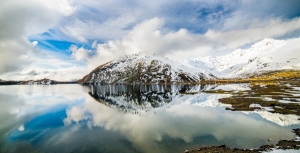
Image (c) Daniele Idini
April 22nd marked the fiftieth anniversary or Earth Day, and leading environmental writer John Gibbons recalled how this had been closely followed by the creation of the Environmental Protection Agency under Richard Nixon in 1972, along with a host of other key environmental protection legislation, writing:
Viewed through the political prism of today’s deeply dysfunctional and hyper-partisan U.S. politics, it seems almost quaint to recall a time when people, irrespective of their politics, religion or skin colour, broadly agreed that eliminating deadly toxins from the air that they breathed and the water that their children drank was a good idea.
Fifty years later, the ideologically toxic Trump regime is busily dismantling large chunks of the progressive regulatory framework that the actions of the U.S. environmental movement ushered into being in 1970. Most sane people think it’s probably a bad idea to allow high levels of mercury, a potent and irreversible neurotoxin, to be released into the air from coal-burning plants.

The Public Intellectual Series continued with assessment by David Langwallner of John Gray, the U.K.’s leading intellectual, and Jonathan Sumption the former U.K. Supreme Court judge who became an outspoken critic of lockdowns, and a defender of civil liberties first formulated in England in the Magna Carta (pictured above).
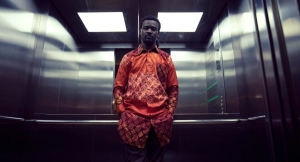
Meanwhile Musician of the Month Niwel Tsumbu asserted the universality of music:
It is very strange for me to hear people talk about pure ‘African Music’ that doesn’t exist – unless you go back thousands of years before humans started roaming around the globe. This concept is simply not true, and frankly, it drives me crazy when people, especially African musicians who use equal-tempered tuning with Western instruments, say so.
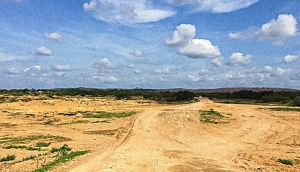
We also published the lyrics of the song ‘Iguatu’ by Bartholomew Ryan:
I sauntered up to the sertão
in the northeast to a town called Iguatu
to find the river
where my cousin drowned in 1973
the name of the river was the Jaguaribe
they called it the dry river
but as his sister Joan said –
‘there was nothing dry about it that day.’
One surprisingly popular article explored how the Longford town of Ballinallee featured in the lyrics of Bob Dylan’s song ‘I Contain Multitudes,’ with a suggestion that it may have come about after a night Dylan spent in the company of fellow bard Shane MacGowan.
Today and tomorrow and yesterday, too,
The flowers are dyin’ like all things do,
Follow me close, I’m going to Ballinalee,
I’ll lose my mind if you don’t come with me.
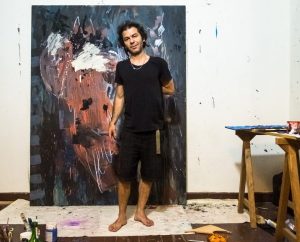
Uluc Ali Kilic in his studio in Istanbul. Daniele Idini
Artist of the month was the extraordinary Uluc Ali Kilic from Turkey:
My subject-matter is often the harm and destruction humanity inflicts on its surroundings, or other traumatic issues occurring in our time, such as the refugee crisis and homelessness. I try to make long-lasting artworks using plastic material which isn’t biodegradable in nature. Likewise, these artworks aim to last long in any viewers’ consciousness.
In fiction there was the unmistakable style of Ilsa Monique Carter in Dumaine:
Glacial and dark by design, her house inhaled the heat if by the gliding open of a sliding glass door, its hermetic seal was compromised. And like a large lung, the house then exhaled a quixotic draft of cooler air, which carried me with it out on to the balcony. Before she’d bolted the door behind me, no matter how briskly, and believe me she was… The sweet swelter had swallowed me whole.
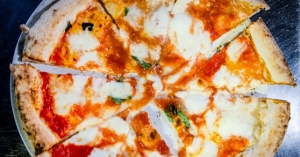
While Gary Grace brought us to the chaotic streets of Dublin to life after a night out in ‘A Slice’:
Robbie was in what his friends referred to as “swaying tree mode”. This meant the slender greying hipster was pissed, his eyes barely open, and not engaging with anyone but moving slowly side to side, mouthing the lyrics to a song that wasn’t playing.
There was poetry in English and his native Romanian from Radu Vancu.
As well as a series of poems to mark Holy Week, including:
A Corona Sonnet
by Paul Curran
With no less haste than the crisis deserves,
All faces one mask of consternation,
We’ve learnt, through conversing in spikes and curves,
This virus respects no race or nation.
Virgil could not have foreseen the Tiber
Would fill so fast with the fallen of Rome,
Hospitals built with sinew and fibre,
Children in hiding, on their own, at home.
His toll’s still rising, but Death, if he could,
Would make no attempt to keep numbers down;
Warm April predicates wearing no hood,
His scythe keenly sharpened shines like his crown.
Unfasten quick this dead pathogen’s trick
Lest lists of the late outnumber the quick.
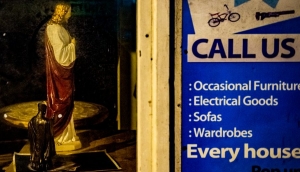
And another from Billy O Hanluain:
Stock Pile On Hope
Walk down the bare,
trembling aisles of your
self. Everything dispensible
is now after its Best Before.
Pass by the Two for One indulgences
of fear and doubt. Shelves stripped
of the superfluous. The tattered packaging
of novelties that amused us
fade behind their
spent Use By dates. Remembered now
as infatuations bought to distract us.
Is it time to close shop?
Turn out the lights?
Time for the din and dirge of shutters?
We are open twenty four hours
and we must never close.
No matter the Feast Day.
The Plague or The Hour.
Turn toward that aisle within,
so often passed in the hurry
of what seemed to matter
there you will find the plenty that
always was and will be.
Load your cart, fill your bags,
weigh your trolley down.
Stock pile on hope!
Unforgettable Year: January 2020
Unforgettable Year: February 2020
Unforgettable Year: March 2020

